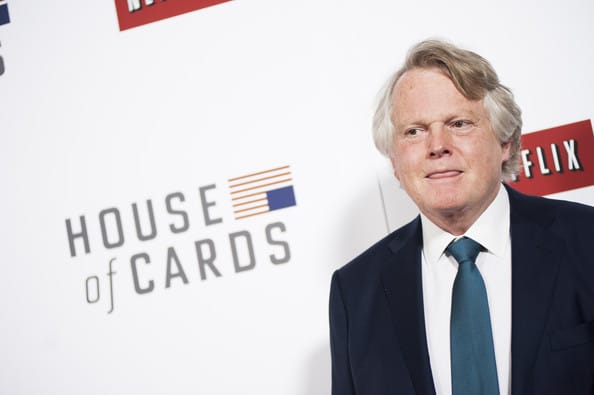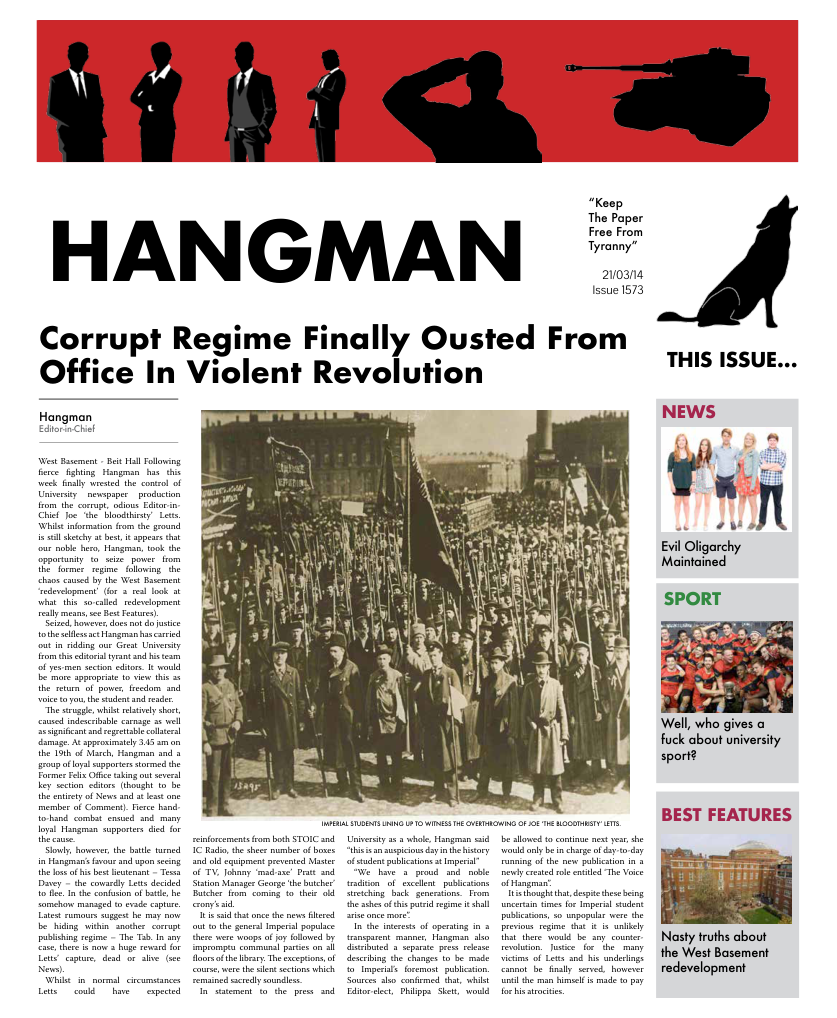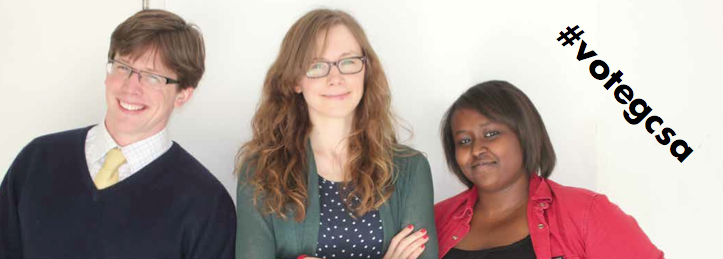House of Cards from the House of Lords
Diana Lucaci and Alexander Morton talk to Lord Dobbs, creator of the House of Cards series

How has your life changed as a result of writing House of Cards?
It totally… I wrote it as an accident. I wrote it as a result of a bet. Actually, I didn’t even write it as a bet, I was challenged on a holiday to see if I could write a book and I was really bored and had nothing else to do on holiday. I’m very bad on holiday so I sat down beside the swimming pool that afternoon with a pad and a pencil and a bottle of wine and I said “I wonder if I could write a book?”. Not in a serious way, but in a way that many people climb Ben Nevis. You climb Ben Nevis – it’s been done a million times before. You climb it, you get there at the top and there’s a sense of fulfilment and achievement in getting there, but nobody in the entire world pays the slightest bit of notice as it’s all been done a million times before. That’s what I thought that it would be like. So, I started writing this book. I found myself really enjoying the whole process. It sort of took off and transformed my life. It totally changed my life for all the right reasons. And it was a complete accident!
As well as your boredom, was there anything else that inspired you?
I had just finished helping Margaret Thatcher fight in the 1987 general election campaign, which was a very bruising experience. Mrs. Thatcher was desperately unkind to me at the time, and I was feeling a bit sore and I was sulking a bit. I had been working incredibly hard for several years leading up to that election. I was feeling battered and bruised and I think that must have had some sort of influence on me because as I said I went by the pool with my pad and my pencil and a bottle of wine. By the time the bottle of wine was finished all I had on my pad were two initials, two letters: ‘FU’. I guess that was a sort of therapy. And the F.U. became Francis Urquhart, Frank Underwood, and as I say it changed the rest of my life.
Where did the name Urquhart come from as it is a rather unusual name?
It’s U. If you go to the telephone directory for U, there are actually a very small number of names that begin with U. Unwin, Underwood, Upright – there isn’t really a huge selection. I thought that the name Urquhart had a rather nice Scottish flavour to it, a slightly mysterious flavour to it, a slightly noble flavour to it and I wanted him to have a background. It was really picked at random.
To what extent was the Final Cut (Season three of the BBC House of Cards) inspired by Margaret Thatcher’s downfall?
Well... You raise a slightly difficult point… I fell out with the BBC and you will not find my name on the Final Cut, the television series. That was because I don’t think that they had taken any notice of the book. So it wasn’t at all inspired by Mrs Thatcher, it was inspired by other people. The BBC did a wonderful version of the House of Cards, and in all honesty, the television series was much better than my amateurish attempt at writing a book. By the time it got to the third one, the ‘Final Cut’, the book was much better that the TV series. The writing improved and the television series, sadly, almost disappeared during the final series.
What do you like about the British and the American adaptations? Do you have any preferences? They are so different having been adapted to different cultures…
Different cultures, different times. We’re actually talking a whole generation later. House of Cards was written when mobile phones were scarcely featured. Now, of course, there are all sorts of technologies that completely dominate our lives. Which one do I prefer? It would be like asking Mo Farah which one of his Olympic titles he prefers, the 5000m or the 10,000m. They are different, but I really do feel as if I’ve won two Olympic gold medals. Ian Richardson [BBC] delivered superbly, Kevin Spacey [Netflix] is just magnificent and I relish the difference. I would hate for one to be a copy of the other! And let’s face it, we are at the early stages of the American version. So, it will go on for a third series now and it might go on even further than that. We’ll wait and see. But I will say this, the American version and dealing with Kevin Spacey and all the people involved in it has been and continues to be the happiest professional experience of my life. They are brilliant, they are wonderful people, they are incredibly professional and they are very warm and supportive. And I have a huge buzz working with them and being with them.
To what extent are you involved in the Netflix production of House of Cards?
I’m an executive producer and I provided the original concept of the characters and what they will do and what motivates them. I’m in touch with them [the team] pretty much every week, but because I’m in here and they’re there. While I go over to the States quite a lot, there’s a real limit onto actually how much I can put into it. I don’t do any of the writing, that is done by a team of writers under a wonderful man called Beau Willimon and that’s taking place in New York right now. I can’t be both in New York and here; I have obligations here. I am there to help them along, to give them any advice that they want, to cheer them along, and to help sell it – absolutely! And to enjoy every moment of it! In all honesty, if I fell under a bus tomorrow, it would still go on – and so it should! It’s a real team effort. I think that there are very few irreplaceable people in the entire work; Kevin Spacey and Robin Wright being the two very obvious ones. They are brilliant. I have watched them do their scenes and they are very funny offstage. Spacey is a real comic! While they are waiting for the sets to be rigged they are laughing, joshing around, playing games, and all of a sudden they change! They go onto the set and what you see on the screen is this extraordinary, extraordinary couple. I think they are dynamite, and I can see many of those scenes being acted out on stage because they are really theatrical and crackle with electricity.
After your first book, House of Cards, you went on to have a very successful writing career. What made you continue and what tips would you have for budding writers?
I enjoyed the freedom of it because you indulge yourself, you decide what is you want to write, where it is you want to go, who is it you want to meet – so it’s incredibly indulgent! It is also terrifying. It is desperately competitive and you never really know from one book to the next what’s going to happen to your world. And when you have family responsibilities, it is a real challenge. It’s that terror that gets you out of bed in the morning and pushes you that step further. So, never take it for granted. I so much prefer it to a corporate life, being, I guess, my own boss. So many people come to me saying “I want to write a book. How do I do it?” And I say it’s very simple – you sit down at a desk, and get out your pen or keyboard and start. There are so many reasons for putting it off, and there is only one way to do it and that’s to get on with it! Until I started I hadn’t the slightest idea whether I could write or not. It was a voyage of discovery. I still don’t regard myself as being a great writer, I regard myself as being a competent writer and I’m learning all the time. There are very few great writers, but you can make yourself a much, much better writer by working very hard at it – which is what I’ve been doing for almost … 27 years now!
Do you have any favourite writers?
Oh loads, yes. Being a writer opens your imagination to all sorts of things, and I found, at least in my case, that it opened my eyes, my mind to all sorts of different writers. Many people are comfortable with one style of writing, one style of book, one genre, and I suppose that I was a bit like that. Nowadays I read almost anything, and as long as it is well written I can get something out of it. The problem is one is so busy writing and doing everything else that the chance to sit down and read for joy are a bit restricted. I have a bookcase at home which I have built for my retirement and I’ve stuffed it, and I am still stuffing it, full of all the great novels that I have wanted to spend my time reading. Many, for instance, are American novels. I love the freshness of American novels. The Old English novels sort of go to my cultural roots, which is wonderful. What’s the most recent book that I have read? A book by Simenon, one of his Maigret novels, which was delightful. Stirred up all sort of things. It’s of its time, it’s of its place – which is France in the 1930s. It reminds me of my childhood when I watched the old Maigret films on television. It’s a very slim little volume; it only takes a few hours to read, but it is full of joy. I think that books are like doors into different worlds – you walk through that door and you find yourself in a totally different world. It’s wonderfully exciting and it’s so cheap – much better than getting on an airplane. It takes you back in time. It takes you forward in time. It introduces you to so many new characters. It is a wonderful, wonderful thing. Whoever invited writing and books ought to be very proud of themselves.
It was suggested that having the adaptation of House of Cards on Netflix made the series more similar to a book…
Yes, I can understand what they meant, because it is conceived and written in a different way. We have 13 hours of television and it is possible to conceive of that like a book with a beginning, middle and an end. In traditional television you have to write an hour and then come to some sort of climax of sort because the viewer then has to go away. You have to engage the viewer to such extent that he or she is going to remember to switch on next week and hopefully remember something from before. And then you have to have a reprise for two minutes at the beginning. It’s a very artificial way of entertaining. Whereas being able to push a button and get as much as you want, when you want it, is absolutely like a book. You stop it when you just want to rest and you pick it up at your own time where you left it off. And in terms of writing, creating a series, it is very liberating. When it is conceived as one work, as opposed to ten or 13 connected pieces of work, it allow for much more creative writing.
You had fictional characters portrayed on screen as well as your colleagues, such as Lady Thatcher. How accurately do you think that she’s been portrayed?
The last time I looked she has been portrayed over thirty times by different actresses on the screen -–many of them didn’t even get close. The one who did it brilliantly in the recent film was Meryl Streep, who was stunning. I mean she was so accurate! I looked at her, I completely forgot that she was Meryl Streep, and I just saw Margaret Thatcher. How truthful was that portrayal? Well it wasn’t truthful, it was a piece of drama and people don’t understand these things. They think that a film about Margaret Thatcher must be a documentary. It can’t be a documentary, it’s not going to be a documentary. This was a dramatic portrayal of somebody, an elderly lady who was suffering greatly from Alzheimer’s, and it was a story about how ‘nothing lasts forever’, how glory always fades. If you look at it as a piece of drama, rather than as an attempt to be a documentary on Margaret Thatcher, suddenly it comes to life and you see it for what it is. But if you think that this is the story of Margaret Thatcher then you are wasting your time. Go and read Charles Moore’s brilliant book – don’t watch a movie. From the movie you might be able to, and you should, find many insights into Margaret Thatcher, but it’s not going to be the ‘truth’. What is the ‘truth’? I read a history book and I say, “Is this the truth?” And it’s never the whole truth, sometimes it’s not even close to the truth and that’s history books.
How was joining the House of Lords with the spectre of revolutionary reform looming over it?
Oh, rather exciting. Rather engaging. I got here just over three years ago and worked very hard to understand it [House of Lords] and to get to know its ways. You can’t come into an institution like this and think you know everything – it’s silly. Most that do so make fools of themselves. What I had done is come to hugely respect the core of the institution and a huge chunk of my colleagues here. It needs reform. Yeah, we are trying to reform it – desperately! The one man who has been trying to stand in the way of the reform that we want is Nick Clegg. But to elect it would make us like that place down the other end fingers pointing, the House of Commons. I can see no real advantage in that and I can see lots of huge disadvantages in that: it would make it more expensive, more professional. I think that we would rush ahead with that sort of reform very unwisely. The place works surprisingly well. It can be made better and we want it to be made better. But the proposal for reform was shambolic, dreamed up on the back of an envelope; they hadn’t thought it through and it quite rightly got thrown on the dustbin of history. I hope that as and when and if they do come back with further measures for reform they would be better thought through than that.
Who do you think was responsible for killing off the Private Member’s Bill [EU Referendum Bill] you were steering through the Lords?
Oh, the Labour Party and the Liberal Democrats. You just had Mr Miliband announce that he’s not going to guarantee an EU referendum at the next election. I believe George Osborne at Cabinet suggested that in the next Queen’s speech we have the EU Referendum Bill and the Lib Dems said “over our dead bodies!” And it was always going to be that way. I mean part of the exercise was to smoke them out and see where they stood. I remember on the final vote it was really rather bizarre, there were people saying “we must discuss and analyse and debate this bill very thoroughly, but we are not going to allow you the time to do it…’” so they voted to end the sitting at three o’clock on a Friday and one of their members was standing up in the chamber, in the confusion of the chamber, pointing at the division lobby saying “this way to kill the bill!” Umm, thank you very much! I mean, we have now clearly established where all the parties stand on the EU Referendum Bill. From my point of view, the only way that anybody is going to be guaranteed a referendum on the EU is to have a Conservative government after the next election. Incidentally, an EU referendum is not pro or anti. It is simply about stopping all this political nonsense that the parties have been up to over the decades. It is about saying that the people, you guys, it’s your future, you decide! And a lot of people who are desperately in favour of a referendum are very pro-EU.
Lord Dobbs, thank you for your time. My pleasure!






